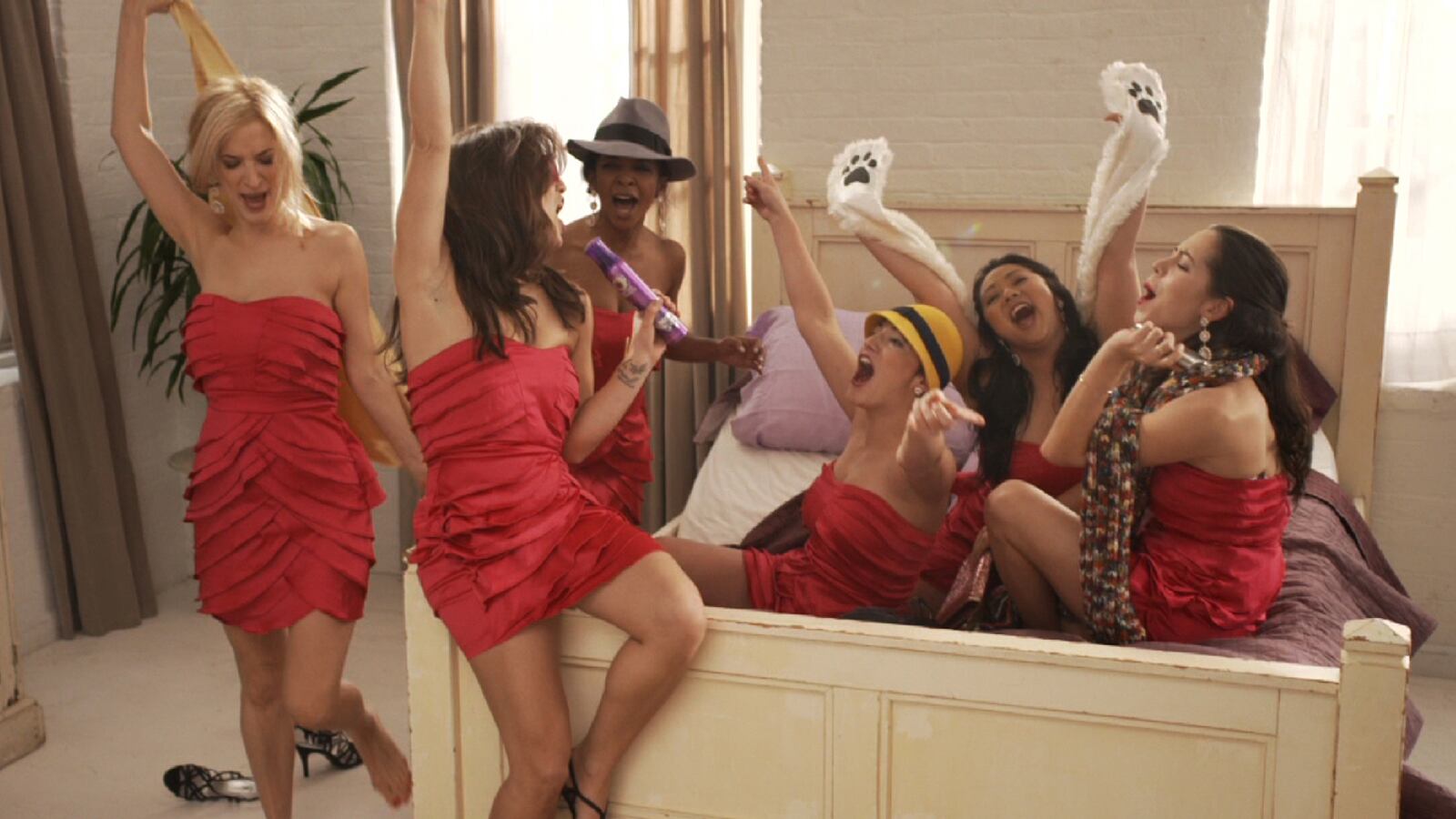Has your boyfriend been noticeably less affectionate of late? Has he insisted on hanging out with his friends, who are girls, who have bigger breasts than you do?

If you’ve ever watched MTV’s Girl Code, which aired the two-hour finale of its wildly popular first season earlier this month (and is recycled endlessly), you’re likely familiar with these telltale signs that you’re about to get dumped. The show features a handful of third-tier comedians weighing in on lady issues—“getting dumped,” “pregnancy scares,” “mean girls”—and making light of them in a way that calls to mind auditions for a lowbrow stand-up show. Except they’re sitting down, individually, against a backdrop of random images—a unicorn or sunglasses, for example—as they discuss the merits of different types of “penises” (the Banana, the Hook, the Torpedo) or dole out useless advice on how to “be classy” (hint: “don’t fucking swear too much”).
In other words, it’s a bunch of glorified talking heads rehashing the same stereotypes we’ve heard entirely too many times before, except that their jokes are peppered with references to social media, e.g., “Pants that show your labia and butt cheeks #ICANT,” and gross-out illustrations. Just when it seems the humor cannot get more basic, a drawing of a girl sitting spread eagle on a toilet flashes across the screen. This is Girl Code’s very literal interpretation of the opposite of “being classy.”
And this, apparently, is the kind of commentary that appeals to young and not-so-young people who watch television these days. Deadline reports that Girl Code, which premiered in April and has been renewed for a second season, is the top original cable series in its time slot among viewers ages 12 to 34 and is one of the 10 most watched shows on TV every week. Much like MTV2’s Guy Code, which premiered in November 2011 and is still running, the spinoff series for chicks is clearly trying to appeal to millennials’ short attention spans with its brief coverage of three different topics in each 20-minute episode.
But Girl Code’s popularity on social media is perhaps the biggest indicator of its success. The show has a huge presence on Tumblr and more than 519,000 followers on Twitter, where stars live tweet the show’s content with the popular #girlcode hashtag and fans retweet their favorite quotes. During the finale, in which “Porn” made its Girl Code debut, comedian and cast member Jamie Lee kicked off live-tweeting with this bit of slapstick wisdom: “Butt stuff is the norm. Thanks, porn!”
Dozens of fans retweeted the jokes in their own girl code (“LMFAO this is soooooo funny!!!!!!!!”)
Meanwhile, since I was not LMFAOing, I scanned Twitter to figure out who was. Among the hashtaggers, I found a high school cheerleader, a 15-year-old girl from California, and another wondering what her brother thinks about her watching the show even though she’s “not sexually active lmao.”
Here I was thinking this show makes The Jerry Springer Show look high-minded when I realized that I, too, might find Girl Code entertaining and perhaps even informative if I was 15 and grew up LMFAOing on Facebook while watching a show that appears to be making some sort of cultural commentary on social media. Instead I grew up watching Beavis and Butthead, which was a brilliant satire of a generation of music-video-watching, pot-smoking ’90s degenerates. Of course, there’s a qualitative difference between these shows. Beavis and Butthead is a cartoon parody and thus is fairly straightforward (but nonetheless brilliant). Girl Code, on the other hand, purports to offer tips that “push the envelope” and “open the dialogue about the wonders and woes of womanhood,” as MTV describes it. But the advice is so obvious and the jokes so disjointed that you’re left wondering what the hell the takeaway is supposed to be.
To be fair, Girl Code is relatively innocuous next to shows like Date My Mom, Undressed, and a number of other non-music-related series that have aired on MTV in recent years. Its biggest flaw is that it perpetuates age-old gender tropes: girls date guys; guys watch porn; girls like sleepovers. As my colleague Adrienne Vogt noted, the show is kind of like a Taylor Swift song. If it’s going to try and work with boring stereotypes, it needs stronger, wittier voices to make it more bearable.






